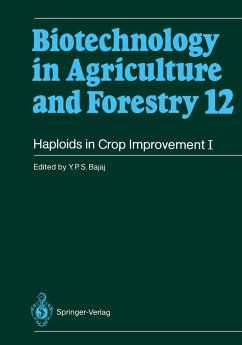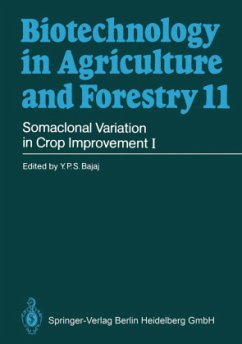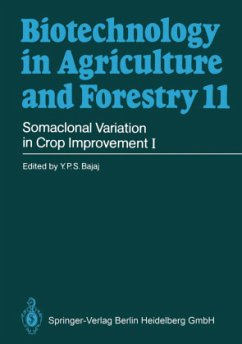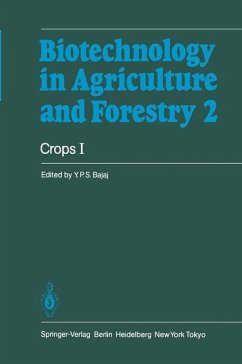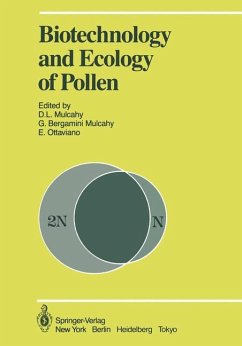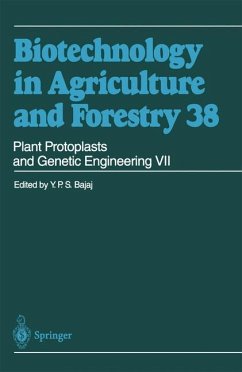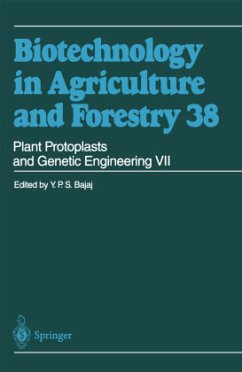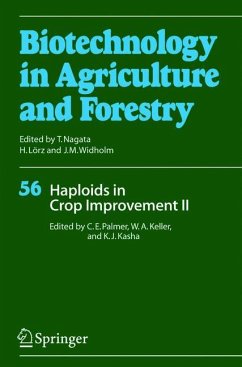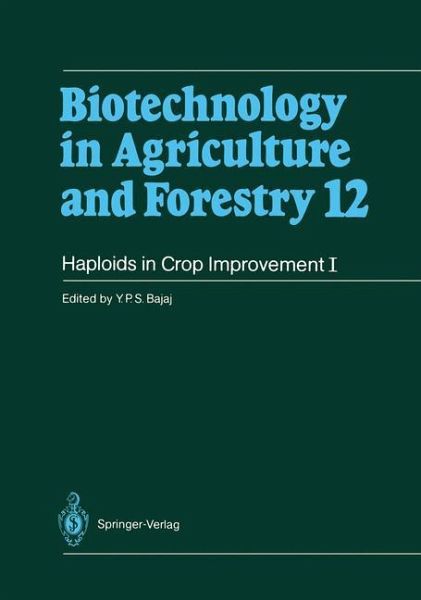
Haploids in Crop Improvement I
From Fundamentals to Quantum Computing
Herausgegeben: Nagata, Toshiyuki; Lörz, Horst; Widholm, Jack, Ed. by Y. P. S. Bajaj
Versandkostenfrei!
Versandfertig in 1-2 Wochen
163,99 €
inkl. MwSt.
Weitere Ausgaben:

PAYBACK Punkte
82 °P sammeln!
Haploid plants have the gametophytic number of chromosomes. They are of great importance, especially in studies on the induction of muta tions and also for the production of homozygous plants, they are needed in large numbers. The conventional methods employed by plant breeders for their production are cumbersome, time-consuming, laborious and rather inefficient. Sometimes it may take years to produce a pure line. However, with the introduction of in vitro techniques, especially anther culture for the induction of androgenesis, it has become increasingly evi dent that these methods considerabl...
Haploid plants have the gametophytic number of chromosomes. They are of great importance, especially in studies on the induction of muta tions and also for the production of homozygous plants, they are needed in large numbers. The conventional methods employed by plant breeders for their production are cumbersome, time-consuming, laborious and rather inefficient. Sometimes it may take years to produce a pure line. However, with the introduction of in vitro techniques, especially anther culture for the induction of androgenesis, it has become increasingly evi dent that these methods considerably accelerate the production of haploids for plant breeding programs. During the last decade, in vitro-produced haploids have been incor porated into breeding programs of many agricultural crops, and positive results have been obtained especially with rice, wheat, potato, barley, maize, asparagus, sunflower, brassica, tobacco, etc. Among these, rice and wheat are the best examples in which a number of improved varieties have been released. In wheat, the breeding cycle can be shortened by three or four generations when the pollen haploid breeding method is used instead of conventional cross-breeding. The release of the wheat varieties Jinghua 1 and Florin is a typical example of what can be achieved with other crops. Taking these developments into considera tion, the present volume, Haploids in Crop Improvement I, was compil ed.



